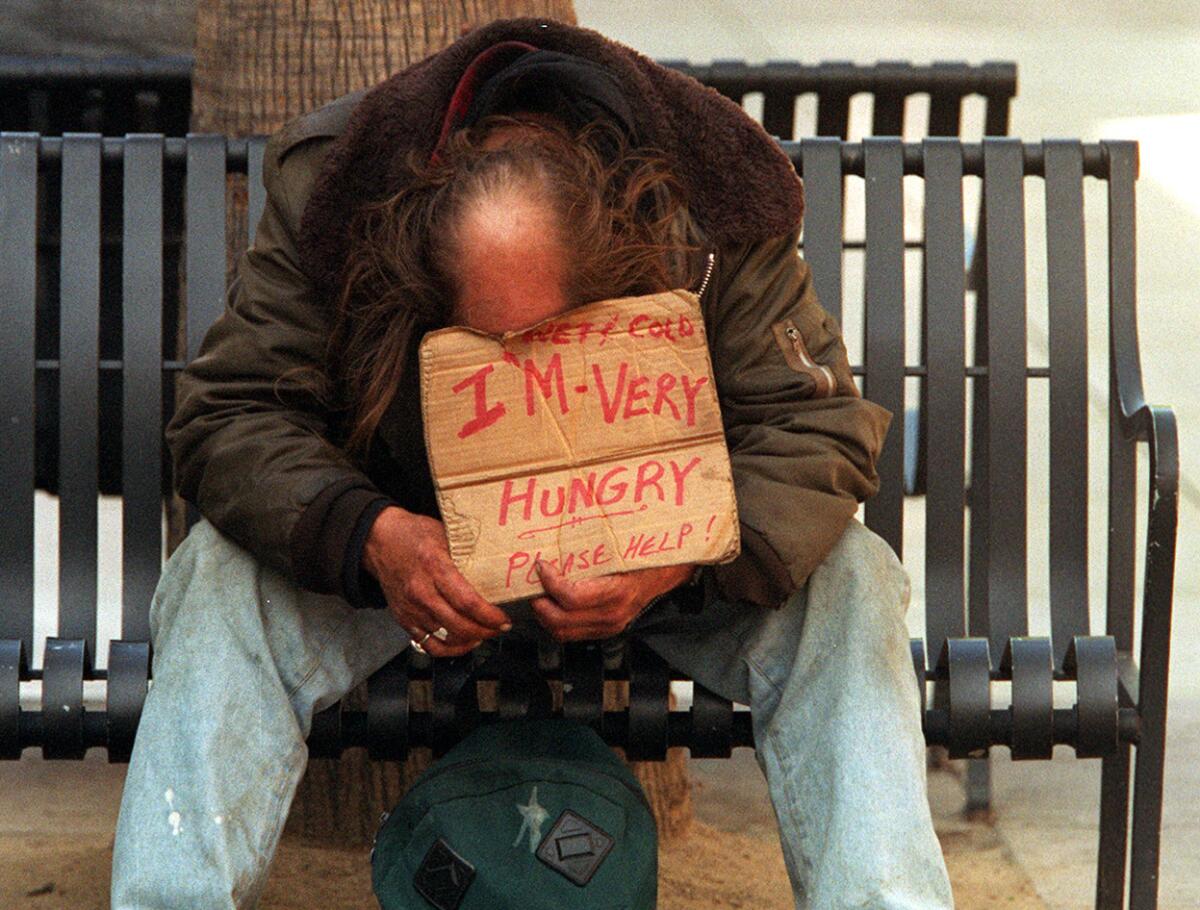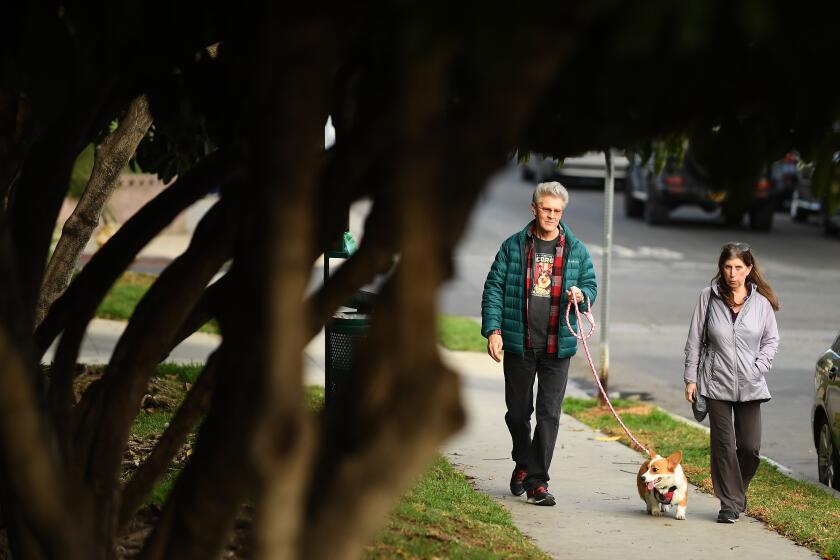Help wanted: Do you know someone in L.A. who offers great assistance to others?

- Share via
I need to ask for your help on the subject of help.
I need you to tell me if you know someone in the Los Angeles area who provides a great deal of help to others.
Maybe it’s a teacher who is going to tremendous lengths right now to make sure the students on her screen feel connected and engaged. Or a mentor who generously opens door after door. Or a neighbor who’s taken on the headache of getting those who aren’t computer-savvy signed up for vaccines.
Maybe it’s a very committed volunteer or someone whose efforts go far beyond the job description at a nonprofit or government office. Or a person who stepped in at a moment of danger or crisis and offered protection or tremendously lightened a load.
Or a few people on a city block who came together and took action when they saw a family living outside and suffering and in need of kindness and assistance.
I’m hoping in the coming months to write a series of stories about people who give greatly of themselves — to look closely at how they help and what has worked and what hasn’t and what it was that made them venture off the sidelines in the first place and go from observing or fretting about a problem to tackling it.
I believe these are subjects that a lot of us would like to know more about. In fact, I frequently hear from readers who tell me just this: that they want to help others and have the means or time to help others but are unsure how to do so effectively.
They see people living on their sidewalks or in vehicles parked on their blocks. They read the statistics about the growing numbers who have lost their jobs and are hungry or aren’t always sure where their next meals are coming from.
They know that government at all levels isn’t doing enough, isn’t even reaching everyone to do too little. But how should they respond? Where should they direct their resources? What can one person do?
Early last year, I went around Los Angeles asking people living on our streets what they needed and what kind of assistance helped them the most. The column I wrote included some practical suggestions — and a lot of people emailed to tell me that they were adopting them. They were stocking up on things to hand out: white crew socks and softer granola bars for those who are missing teeth. They told me they appreciated the advice on what to do that I had solicited from others.
I always try to encourage people when I write about a specific person’s need to extrapolate outward and consider helping those they see around them in similarly straitened circumstances.
But often readers tell me that without clear directives they feel frozen and at a loss about how to take the first step.
Which is one reason, I think, why stories about specific people who are struggling — who are about to lose their homes or their businesses or can’t pay for a funeral or need a job — usually prompt many generous responses.
Give us a GoFundMe campaign to contribute to, tell us an empty fridge needs filling and we know how to proceed.
Figuring out how to help is harder when we’re looking out on a world of need and we don’t have that road map to guide us.
How to get at the heart of how to help has been on my mind a lot as I’ve been making my way through the many emails I received in response to a recent column that I wrote to update you on a previous one, about a man who’d lost his job and found himself homeless and asked strangers to take care of his corgi. After I wrote the first column, concerned readers rushed in. One act of kindness led to others.
A man with a PhD lost his six-figure job and became homeless. He asked strangers to foster his dog. When his story was told, help poured in and gave him what he needed to get back on his feet.
A lot of readers have told me that they want more such stories — of people stepping up and stepping in to help.
I love to write about the people who do take action — an actress who devotes a lot of her time to watching out for a child in the foster-care system, a couple that hosts dinners for homeless people to try to build their support systems, a high school student who in the middle of a pandemic began delivering groceries to the vulnerable for free, a man who gave his kidney to a co-worker he knew only casually in the office.
I love when I learn valuable lessons from their experiences — as I did when I wrote about the learning curve of a former singer-songwriter and music producer as he set out to do right by the people of Pico-Union after he bought an old house of worship in their neighborhood.
I think there’s a lot to be gained by listening to experienced helpers and asking them to share their knowledge.
And I think it’s a relief sometimes to read stories that remind you that people can get along and help each other and “take a sad song and make it better.”
That’s another thing I hear a lot from readers: Please give us more breaks from all the grim news.
So again, I come to you asking for help. Use my email. I have one that’s easy to remember. Just write to me at [email protected].
Tell me about the people you know who do great service. Let me know what they do for others and how to get in touch with them.
Help me find the helpers who can help the rest of us do better at helping one another.
More to Read
Sign up for Essential California
The most important California stories and recommendations in your inbox every morning.
You may occasionally receive promotional content from the Los Angeles Times.












